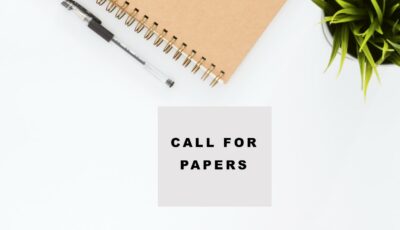CfP: Re-Constructing Perestroika(s): In Search of a New Vocabulary for the Transformation of Central and Eastern Europe and Eurasia

Date: 14–15 March 2024
Location: Vila Lanna Conference Centre of the Czech Academy of Sciences (V Sadech 1/1, 160 00 Praha 6-Bubeneč)
Organisers: Institute of Contemporary History, Czech Academy of Sciences, Prague; Georgetown University, Washington DC Center of Contemporary History; ZZF Potsdam
Deadline to submit proposals: 31 October 2023
For a long time, the term Perestroika meant first and foremost ‘reforms from above’, whose initiative and execution were inextricably linked with the name of Mikhail Gorbachev. Yet a look back into contemporary sources and commentary quickly points to many actors, many ideas, and many debates and conversations taking place in a time characterized by emotional intensity and economic hardship, by ardent pursuit of hidden facts and fascination with mysticism and conspiracies. From a distance of more than thirty years, it has also become apparent that Perestroika cannot be limited to the political and economic spheres but comprises the entirety of social and cultural life as well as new fields of intellectual, organizational, and cultural activity.
We consider Perestroika a period of long(er) durée, meaning that we believe that the process of restructuring did not start on a certain date in the mid-1980s and did not stop with the revolutions in 1989 or the dissolution of the Soviet Union in 1991, but continued well into the 1990s. We also understand Perestroika to be a process not limited to the territory of the Soviet Union but rather happening across Central and Eastern Europe and Eurasia under different terminologies, including but not limited to changes, transformation, transition, and reform. Above all, we understand Perestroika to be a process (or processes) that was (were) enacted by people with agency, whose actions responded and adapted to, but also subverted and manipulated official policies and made Perestroika a multi-faceted and multi-directional movement that rapidly and decisively changed the region and yet allowed the survival of many socialist features and legacies.
This workshop seeks to push beyond the limits—both geographic and temporal—of what we usually think of as perestroika. We, the organizing team, understand Perestroika to mean the rise of the rock underground as well as long queues in front of empty shops, new freedoms as well as violent clashes, first steps towards democratic processes as well as resurrection of old nationalist and anti-semitic tropes. Perestroika is represented by the abundance of horoscopes in every paper and journal as well as by the manifestos and declarations produced by grassroots organizations of all stripes. Perestroika was an economic programme that ushered in political change and created a very particular social reality but could also translate into feelings, identities, a life span or a shorthand for both memories and future beliefs.
It is time that scholarship develops a richer vocabulary with reference to Perestroika in order to capture its multiple features and set them into a historical context. We are calling for proposals for papers that look at Perestroika in any part of Central and Eastern Europe and Eurasia from a fresh angle, use unusual sources or introduce a new paradigm designed to further understanding of the societal processes taking place at the time.
This conference will be the first in a series of conferences under the Aegis of the ERC grant »Perestroika from Below«, organized in collaboration with ZZF Potsdam and Georgetown University and will be followed by »Processing Perestroika« (to be held at Georgetown University) and »Appropriating Perestroika« (to be held at the ZZF Potsdam).
It will take place on 14-15 March 2024 at the Vila Lanna Conference Centre of the Czech Academy of Sciences in Prague.
Proposals of no more than 500 words accompanied by a short CV (one page) should be sent to Margarita Pavlova (margarita.pavlova@zzf-potsdam.de) by 31 October 2023. Notifications of acceptance will be sent out by the first week of December.
All conference participants will be fully funded.
For further questions please contact Margarita Pavlova at the above address.
Veronika Pehe (Czech Academy of Sciences)
Kelly Smith and Bradley Gorsky (Georgetown University)
Juliane Fürst (ZZF Potsdam)
